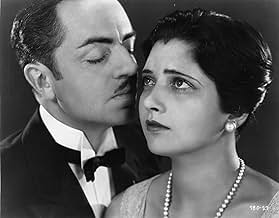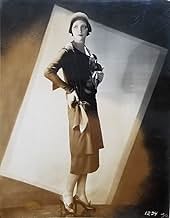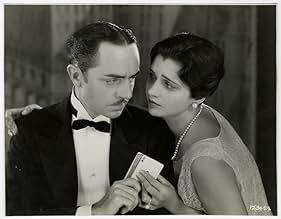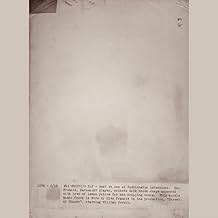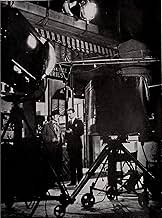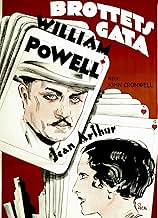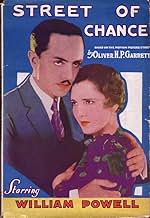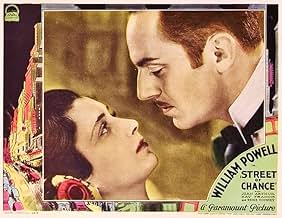AVALIAÇÃO DA IMDb
6,4/10
455
SUA AVALIAÇÃO
Adicionar um enredo no seu idiomaA big-time, but honest gambler has to prevent his younger brother from following in his footsteps, and taking up gambling.A big-time, but honest gambler has to prevent his younger brother from following in his footsteps, and taking up gambling.A big-time, but honest gambler has to prevent his younger brother from following in his footsteps, and taking up gambling.
- Direção
- Roteiristas
- Artistas
- Indicado a 1 Oscar
- 3 vitórias e 1 indicação no total
Oscar Apfel
- Bartender
- (não creditado)
G. Pat Collins
- Police officer
- (não creditado)
John Cromwell
- Imbrie
- (não creditado)
Gordon De Main
- Gambler
- (não creditado)
Jack Luden
- Holland House Hotel Clerk
- (não creditado)
William H. O'Brien
- Waiter
- (não creditado)
Broderick O'Farrell
- Gambler
- (não creditado)
Avaliações em destaque
This was quite enjoyable on a few levels. The lead actors in general has good strong performances, with Kay Francis having a few bad scenes. I blame the director for choosing those because other scene with her were totally believable. At first the story seemed a little confusing but quickly was understandable. A couple favorite scenes of mine were where William Powell finishes talking to Kay Francis and then walks out. Most films of the time would have cut the moment he walked out, but the camera kept rolling and we saw Francis slump down in dispare. The other favorite was the top down card scene towards the end. Overall, I would mainly recommend this to fans of the Thin Man series or other serious "black and white fans." It's definitely a hidden gem.
In this film, the always debonair William Powell plays a businessman leading a double life as "Natural" Davis, an elite gambler with a penchant for winning because he "knows the percentages." He deals with gangsters and can summon up toughness when he needs to, but he also has personal integrity and treats people with fairness, at least, per his world's code. He's thus another example the common (and rather dubious) film trope of a guy who's operating outside the law, but lives by a moral code and is established as virtuous anyway. Here that's somehow true even when we see him order another gambler to be murdered because he's caught him stealing from him. Naturally, the violence isn't depicted.
Trouble comes to Natural Davis in two forms: (1) his wife (Kay Francis) is fed up with his late nights and threatens to call it quits, and (2) his little brother (Regis Toomey) comes to town looking to gamble himself, not knowing that the legendary Natural Davis is his own brother. Natural tries to do the right thing on both fronts, that is, to make drastic changes to preserve his marriage, and to attempt to dissuade his brother from the sordid life of gambling. His idea is a little trickery to do the latter, leading to a pretty fine scene of the brothers in a high stakes poker game together.
The film is certainly stronger towards the end, but it's a little mechanical getting there, stretching its simplistic plot out to fill the runtime. It's not clear how this nominated for a Best Writing Oscar, but 1930 was not a particularly strong year for films, with filmmakers still adapting to sound (the following years up to the end of the pre-Code era are certainly better). Regardless, from where I sit, Kay Francis and Jean Arthur (who plays the brother's wife) were largely wasted, their characters mostly just planets in orbit around Powell's. There is drama leading to a great final line from Powell, but the story line for the brother was unsatisfactory because it seemed far too tidy (wow, cured just like that, despite the temptation on the train!).
With that said, the film is worth seeing if you're a fan of the stars, and there were also various little things from the era that caught my eye. Mostly these are shots in New York, including the light streaming through the windows of Grand Central Station, and the big billboards for James J. Walker, a Tammany Hall mayor who was forced to resign a couple of years later. I also liked the neon sign advertising Spider-Web Hosiery in the background of the scene Powell has with Arthur. Lastly, it was interesting to see the swastika on some of the poker chips, but while the Nazis had already appropriated the symbol by this time, it appears these types of chips had been made for decades in America, and mercifully no fascist sympathies were being subtly expressed.
Trouble comes to Natural Davis in two forms: (1) his wife (Kay Francis) is fed up with his late nights and threatens to call it quits, and (2) his little brother (Regis Toomey) comes to town looking to gamble himself, not knowing that the legendary Natural Davis is his own brother. Natural tries to do the right thing on both fronts, that is, to make drastic changes to preserve his marriage, and to attempt to dissuade his brother from the sordid life of gambling. His idea is a little trickery to do the latter, leading to a pretty fine scene of the brothers in a high stakes poker game together.
The film is certainly stronger towards the end, but it's a little mechanical getting there, stretching its simplistic plot out to fill the runtime. It's not clear how this nominated for a Best Writing Oscar, but 1930 was not a particularly strong year for films, with filmmakers still adapting to sound (the following years up to the end of the pre-Code era are certainly better). Regardless, from where I sit, Kay Francis and Jean Arthur (who plays the brother's wife) were largely wasted, their characters mostly just planets in orbit around Powell's. There is drama leading to a great final line from Powell, but the story line for the brother was unsatisfactory because it seemed far too tidy (wow, cured just like that, despite the temptation on the train!).
With that said, the film is worth seeing if you're a fan of the stars, and there were also various little things from the era that caught my eye. Mostly these are shots in New York, including the light streaming through the windows of Grand Central Station, and the big billboards for James J. Walker, a Tammany Hall mayor who was forced to resign a couple of years later. I also liked the neon sign advertising Spider-Web Hosiery in the background of the scene Powell has with Arthur. Lastly, it was interesting to see the swastika on some of the poker chips, but while the Nazis had already appropriated the symbol by this time, it appears these types of chips had been made for decades in America, and mercifully no fascist sympathies were being subtly expressed.
... with "The Czar of Broadway" being a different film made in the same year loosely based on the famous gambler's life.
John Marsden (William Powell) is a big time professional gambler who goes by the name "Natural Davis" when gambling. He has an office where he is supposed to be buying and selling bonds that acts as a front. John has a baby brother "Babe" (Regis Toomey) who lives on the west coast and who has very recently married Judith (Jean Arthur). They have come to New York City on their honeymoon. What Judith doesn't know is that Babe has run up John's wedding gift to them of ten thousand dollars to fifty thousand dollars by gambling and intends to continue gambling in New York to get the 150K that he needs to buy into the partnership of a firm. At the same time, John's wife Alma (Kay Francis) has served him with divorce papers after a six month separation, and she will not consider reconciling unless John retires as a professional gambler and leaves town with her.
John agrees to stop gambling and leave town with his wife, but shortly thereafter finds out that his brother is getting way in over his head gambling with the kinds of hoods who work along Broadway, and he's put in the position of either having to stop his brother and save him from the path he's been on all of these years, or have one last chance with his wife. Complications ensue.
William Powell played villains through 1928 at Paramount as his looks - if you knew nothing about his voice - allow him to look rather menacing. This was one of those films in which he was playing a bigger role than the types he had in the silent era, yet he is still playing a rather dark character. In spite of some of his more dastardly deeds, though, he is a relatable and even sympathetic protagonist.
I wish this film was better known, and I'd recommend this one. It has plenty of atmosphere - it's almost noirish in style and substance rather than a precode - and it is a good showcase for the talent of the main players, although Jean Arthur is almost unrecognizable here.
John Marsden (William Powell) is a big time professional gambler who goes by the name "Natural Davis" when gambling. He has an office where he is supposed to be buying and selling bonds that acts as a front. John has a baby brother "Babe" (Regis Toomey) who lives on the west coast and who has very recently married Judith (Jean Arthur). They have come to New York City on their honeymoon. What Judith doesn't know is that Babe has run up John's wedding gift to them of ten thousand dollars to fifty thousand dollars by gambling and intends to continue gambling in New York to get the 150K that he needs to buy into the partnership of a firm. At the same time, John's wife Alma (Kay Francis) has served him with divorce papers after a six month separation, and she will not consider reconciling unless John retires as a professional gambler and leaves town with her.
John agrees to stop gambling and leave town with his wife, but shortly thereafter finds out that his brother is getting way in over his head gambling with the kinds of hoods who work along Broadway, and he's put in the position of either having to stop his brother and save him from the path he's been on all of these years, or have one last chance with his wife. Complications ensue.
William Powell played villains through 1928 at Paramount as his looks - if you knew nothing about his voice - allow him to look rather menacing. This was one of those films in which he was playing a bigger role than the types he had in the silent era, yet he is still playing a rather dark character. In spite of some of his more dastardly deeds, though, he is a relatable and even sympathetic protagonist.
I wish this film was better known, and I'd recommend this one. It has plenty of atmosphere - it's almost noirish in style and substance rather than a precode - and it is a good showcase for the talent of the main players, although Jean Arthur is almost unrecognizable here.
In watching the early Paramount talkies with William Powell it never ceases to amaze that Powell stage trained voice that he had apparently knew instinctively how to modulate for the new medium of talking motion pictures. It was why he was able to have three successful Philo Vance films and Street Of Chance is in the same mode.
Powell's character of 'Natural' Davis is of course modeled on the legendary Arnold Rothstein who gambled with quite a bit more than just games of chance. This is the life Powell has chosen for himself and he and wife Kay Francis are content. He's the best at what he does in a business filled with uncertainty.
But this is not a life he wants for his brother Regis Toomey who comes into town wanting to try the gambling world and be the best like 'Natural Davis. That's not what Powell wants for his kid brother, he wants Toomey to be and stay respectable. Tragedy results when Powell tries some desperate means to keep Toomey from the life.
Powell and Francis are at the top of their game and Toomey registers well as the eager younger brother. Jean Arthur is here as well, but she's really not the Jean Arthur who developed later on in those Thirties screwball comedies, she took quite a while to develop as a screen personality.
Street Of Chance shows William Powell at really good advantage in a carefully delineated role. For his fans definitely catch this one.
Powell's character of 'Natural' Davis is of course modeled on the legendary Arnold Rothstein who gambled with quite a bit more than just games of chance. This is the life Powell has chosen for himself and he and wife Kay Francis are content. He's the best at what he does in a business filled with uncertainty.
But this is not a life he wants for his brother Regis Toomey who comes into town wanting to try the gambling world and be the best like 'Natural Davis. That's not what Powell wants for his kid brother, he wants Toomey to be and stay respectable. Tragedy results when Powell tries some desperate means to keep Toomey from the life.
Powell and Francis are at the top of their game and Toomey registers well as the eager younger brother. Jean Arthur is here as well, but she's really not the Jean Arthur who developed later on in those Thirties screwball comedies, she took quite a while to develop as a screen personality.
Street Of Chance shows William Powell at really good advantage in a carefully delineated role. For his fans definitely catch this one.
New York businessman William Powell (as John "Jack" B. Marsden) is really the city's notorious underworld gambler "Natural Davis" (modeled after the infamous Arnold Rothstein). While very successful at what he does (due to playing the percentages), Mr. Powell wants to get out of the racket. He has received a separation summons from model-ish posing Kay Francis (as Alma), who is tired of being the stay-at-home gambler's wife. Powell is also feeling some remorse about having a lowly compatriot (Brooks Benedict) shot dead. He prides himself on being honest, and will kill those who don't play by the rules. Nobody welches.
Powell promises Ms. Francis he will give up gambling, and they plan a second honeymoon.
Then, Powell's similarly gambling-addicted kid brother Regis Toomey (as Alan "Babe" Marsden) arrives from San Francisco. Newly married to Jean Arthur (as Judith), he is in New York to gamble Powell's cash wedding gift into bigger bucks - and he wants to do it in the company of the legendary "Natural Davis" (not knowing "Natural" is his brother). This is, of course, an eyebrow-raising plot development, since Mr. Toomey should probably be thinking he will lose his shirt in such a match-up - so, let's just call him overconfident. Well, Powell concocts a plan to quit gambling, re-gain his wife, and cure his brother's gambling itch...
"Street of Chance" is a typically spotty production for the times, but it does contain some great-looking moments, courtesy of director John Cromwell and photographer Charles Lang. Howard Estabrook received an "Academy Award" nomination for cleverly white-washing this story of a real life gambler; he uses natural dialogue - answering "Good morning" with "What's good about it?" And, quotes from popular songs (like "Button Up Your Overcoat)" certainly ticked some fancy. Powell is a commanding lead, and the incidental characters are colorful; as "Tony" the one-armed newspaper salesman, John Risso is most memorable.
******* Street of Chance (2/3/30) John Cromwell ~ William Powell, Kay Francis, Regis Toomey, Jean Arthur
Powell promises Ms. Francis he will give up gambling, and they plan a second honeymoon.
Then, Powell's similarly gambling-addicted kid brother Regis Toomey (as Alan "Babe" Marsden) arrives from San Francisco. Newly married to Jean Arthur (as Judith), he is in New York to gamble Powell's cash wedding gift into bigger bucks - and he wants to do it in the company of the legendary "Natural Davis" (not knowing "Natural" is his brother). This is, of course, an eyebrow-raising plot development, since Mr. Toomey should probably be thinking he will lose his shirt in such a match-up - so, let's just call him overconfident. Well, Powell concocts a plan to quit gambling, re-gain his wife, and cure his brother's gambling itch...
"Street of Chance" is a typically spotty production for the times, but it does contain some great-looking moments, courtesy of director John Cromwell and photographer Charles Lang. Howard Estabrook received an "Academy Award" nomination for cleverly white-washing this story of a real life gambler; he uses natural dialogue - answering "Good morning" with "What's good about it?" And, quotes from popular songs (like "Button Up Your Overcoat)" certainly ticked some fancy. Powell is a commanding lead, and the incidental characters are colorful; as "Tony" the one-armed newspaper salesman, John Risso is most memorable.
******* Street of Chance (2/3/30) John Cromwell ~ William Powell, Kay Francis, Regis Toomey, Jean Arthur
Você sabia?
- CuriosidadesThe Alfred Hitchcock Hour (1962-1965) remade this story under the title of "A Piece of the Action" starring Gig Young and Robert Redford. It was the premier program of the show.
- ConexõesFeatured in David O. Selznick: 'Your New Producer' (1935)
Principais escolhas
Faça login para avaliar e ver a lista de recomendações personalizadas
- How long is Street of Chance?Fornecido pela Alexa
Detalhes
- Data de lançamento
- País de origem
- Idioma
- Também conhecido como
- Street of Chance
- Locações de filme
- Empresa de produção
- Consulte mais créditos da empresa na IMDbPro
- Tempo de duração
- 1 h 15 min(75 min)
- Cor
- Proporção
- 1.20 : 1
Contribua para esta página
Sugerir uma alteração ou adicionar conteúdo ausente

